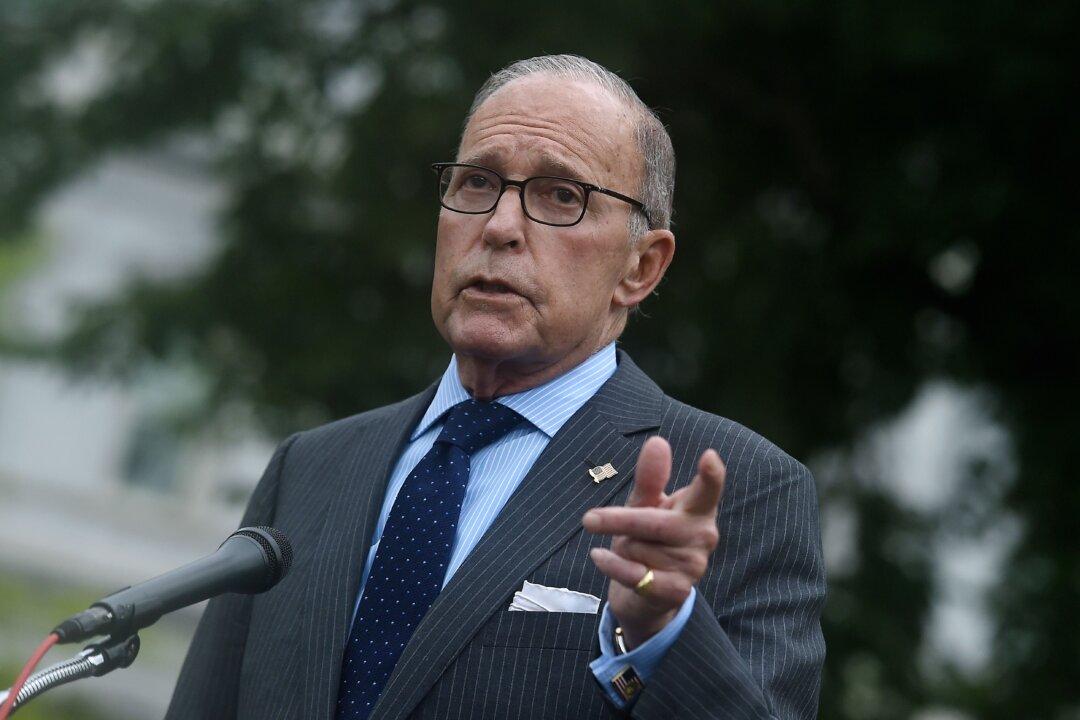The bipartisan relief package put forth on Tuesday is a “constructive effort,” a top President Donald Trump adviser said Wednesday.
“We’re not going to comment on it directly. I would just say, I think it’s a constructive effort, it’s a good group, bipartisan group, lot of friends in that gang,” National Economic Council Director Larry Kudlow told reporters outside the White House in Washington.





